Inquiry into violence against Indigenous women hears first day of testimony in Canadian Arctic
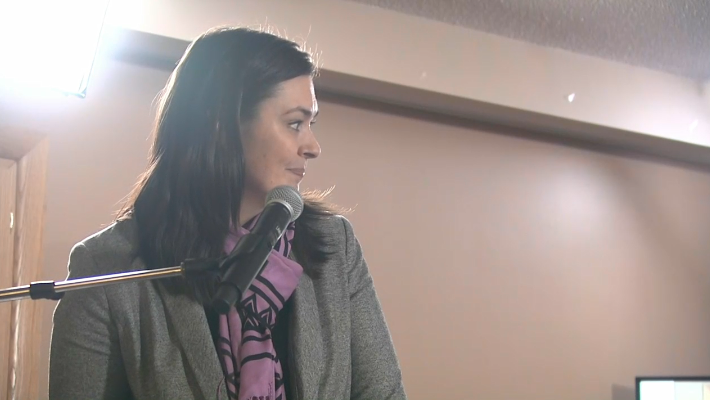
A national inquiry into violence against Indigenous women began its first day of testimony in the Canadian Arctic on Tuesday.
Over twenty family members and violence survivors are scheduled to speak at the National Inquiry into Missing and Murdered Aboriginal Women and Girls in the Inuit community of Rankin Inlet, a community of approximately 2800 people in Canada’s eastern Arctic territory of Nunavut.
“The next three days will be very important, because Canada will hear your voices, will hear your story, will hear what happened to you,” inquiry commissioner Michèle Audette said in her opening remarks in both English and French. “We will honour your voices, you messages and what your share with us so it cannot be denied. We’ll make sure they will see it, feel it, hear it and read it.”
Commissioner Qajaq Robinson, a lawyer born and raised in Nunavut and a fluent Inuktitut-speaker, became emotional in her open remarks when she stressed that the North was more than “ships and ports” and “coke commercials and polar bears” and that the focus should be on people and family.
Searing testimony
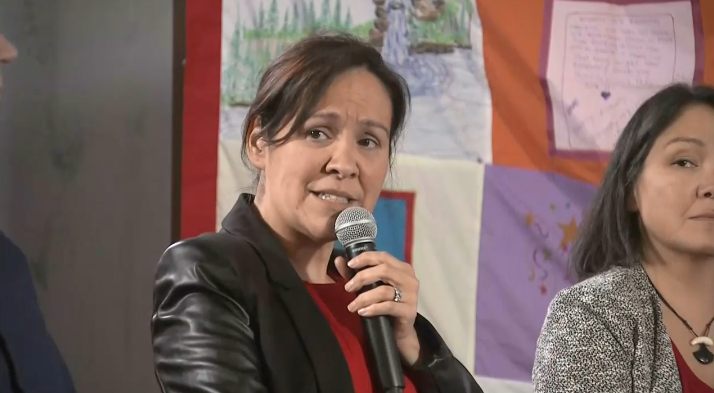
The day’s testimony began with Rankin Inlet resident Laura MacKenzie, who spoke of the abuse that led to the death of her aunt Betsy Kalaserk, and the lack of consistent services available to Kalaserk to recover from childhood trauma.
She also described a culture of silence in Nunavut communities when it comes to abuse, describing childhood sexual abuse as “a silent killer.”
At several points during her morning testimony she turned away from the commissioners, removing her glasses to address the audience, and the camera, directly.
“Let’s quit turning a blind eye what we know,” she said. “I know this isn’t easy to hear. It’s not easy for me to say.”
National crisis
The National Inquiry into Missing and Murdered Aboriginal Women and Girls was set up by Prime Minister Justin Trudeau in 2015 after calls from many Indigenous leaders, groups and organisations to examine the high rates of violence against indigenous women in Canada.
Indigenous women make up 4 per cent of Canada’s female population, but 16 per cent of all women murdered in Canada between 1980 and 2012 were Indigenous, the government says.
Testimony continues this afternoon.
The Rankin Inlet hearings run until February 22 and will be livestreamed on the inquiry’s Facebook page and on CBC North.
Write to Eilís Quinn at eilis.quinn(at)cbc.ca
Related stories from around the North:
Canada: Inquiry on violence against Indigenous woman heads to Arctic Canada, Eye on the Arctic
Denmark: Nordics report high abuse levels against women, Radio Sweden
Sweden: Reports of violent crime increasing in Sweden’s North, Radio Sweden
United States: Survey finds violence against women widespread in Western Alaska region, Alaska Dispatch News

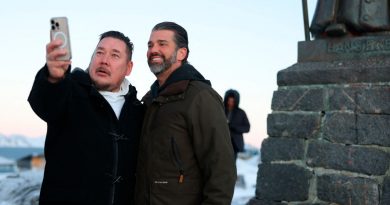
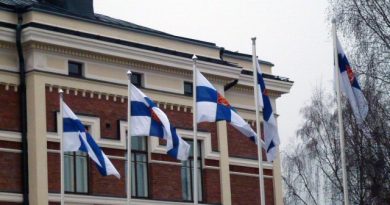
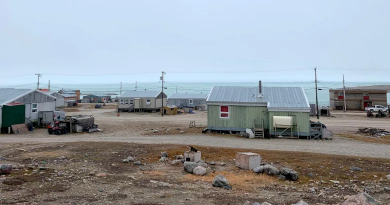
It would seem that violence and sexual abuse against indigenous women and girls, way above national averages is not confined to arctic countries. In Australia, the same issues face many aborigonal communities. Could it be that sexual predation is an inherent part of being a human male and it is only ‘civilisation’ which has reduced it marginally. If so, this would to some extent explain why males in situations where inhibitions are reduced, eg drunkedness, warfare etc, revert to this type of behaviour. It may also be part of the explanation of why, in recent times, a significant number of men in positions of power have been accused and convicted of ‘inappropriate behaviour’, behaviour that has been part of the history of human males throughout history. It would seem that it is only in matriarchal societies where such behaviour by men is subdued.